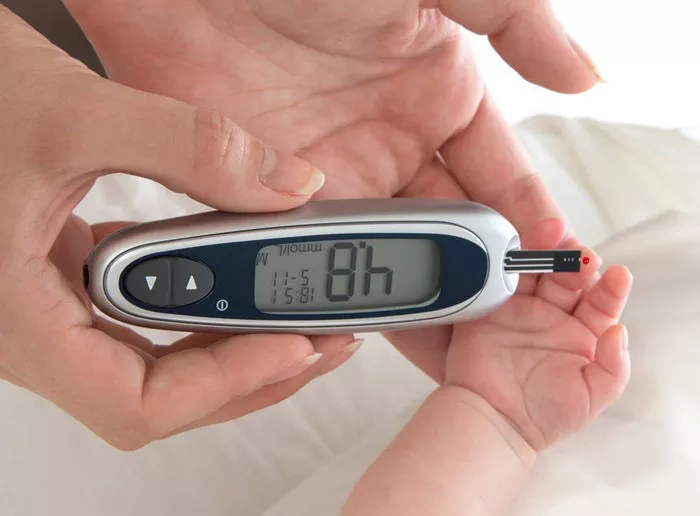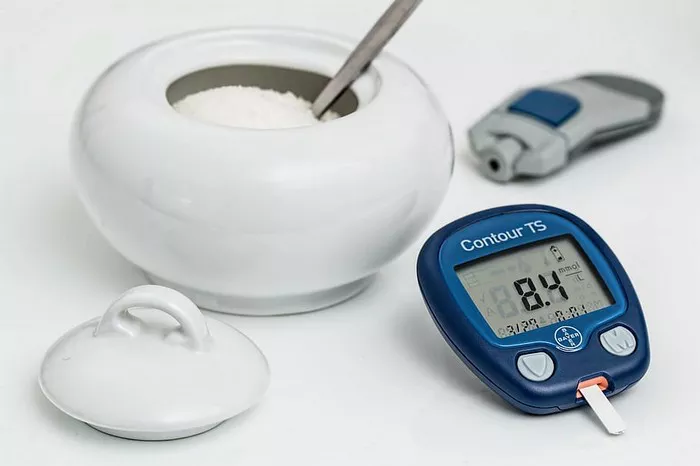Nocturnal hypoglycemia, a potentially dangerous drop in blood sugar levels during the night, poses a significant challenge for individuals with diabetes. As a physician specializing in diabetes management, it is imperative to delve into the intricate web of factors contributing to this phenomenon. In this article, we will explore the multifaceted causes of nocturnal hypoglycemia, ranging from physiological mechanisms to behavioral patterns, and discuss strategies for prevention and management.
Physiological Factors:
- Counterregulatory Hormonal Response: The body employs a complex hormonal interplay to maintain blood glucose levels within a narrow range. During sleep, counterregulatory hormones such as glucagon, cortisol, and epinephrine play a crucial role in opposing the actions of insulin to prevent hypoglycemia. However, in individuals with diabetes, impaired counterregulatory hormone secretion or blunted response can compromise this defense mechanism, predisposing them to nocturnal hypoglycemia.
- Delayed Insulin Absorption: The kinetics of insulin absorption can vary depending on the injection site, insulin formulation, and individual factors such as blood flow and tissue characteristics. Certain long-acting insulin analogs, although designed for extended duration of action, may exhibit unpredictable absorption patterns, leading to delayed hypoglycemia hours after administration, particularly during the nocturnal period.
- Somogyi Effect: Named after the researcher who first described it, the Somogyi effect refers to the rebound phenomenon of hyperglycemia following nocturnal hypoglycemia. It occurs due to the release of counterregulatory hormones in response to low blood glucose levels during sleep, triggering hepatic glucose production and causing a subsequent rise in blood sugar levels by morning.
Behavioral Factors:
- Dietary Habits: The timing and composition of meals can significantly influence nocturnal glycemic control. Consuming carbohydrate-rich meals shortly before bedtime may lead to a surge in postprandial glucose levels, followed by reactive hypoglycemia as the body continues to metabolize ingested carbohydrates during sleep. Conversely, skipping evening meals or excessive caloric restriction can predispose individuals to nocturnal hypoglycemia due to prolonged fasting periods.
- Physical Activity: Regular exercise is an essential component of diabetes management, but its timing and intensity can impact nocturnal glycemic stability. Engaging in vigorous physical activity close to bedtime may lower blood glucose levels through increased insulin sensitivity and glucose uptake by skeletal muscles. Moreover, exercise-induced hypoglycemia can persist during the nocturnal period, especially in individuals using insulin or insulin secretagogues.
- Alcohol Consumption: Alcohol consumption, particularly in the evening hours, poses a unique challenge for individuals with diabetes. While moderate alcohol intake may initially raise blood glucose levels due to its carbohydrate content, it can later precipitate nocturnal hypoglycemia by inhibiting hepatic glucose production and potentiating the hypoglycemic effects of insulin or insulin secretagogues.
- Stress and Emotional Distress: Psychological stress and emotional distress can trigger the release of stress hormones such as cortisol and adrenaline, which in turn, raise blood glucose levels through gluconeogenesis and glycogenolysis. However, chronic stress or anxiety-related sleep disturbances may disrupt normal hormonal rhythms, leading to nocturnal hypoglycemia in susceptible individuals.
Clinical Considerations:
- Continuous Glucose Monitoring (CGM): CGM technology provides real-time information on glucose fluctuations, enabling early detection and intervention for nocturnal hypoglycemia episodes. Incorporating CGM data into diabetes management algorithms allows for personalized adjustments in insulin dosing, meal timing, and physical activity to mitigate the risk of nocturnal hypoglycemia while optimizing glycemic control.
- Individualized Insulin Regimens: Tailoring insulin regimens to match the patient’s lifestyle, dietary habits, and physiological needs is essential for preventing nocturnal hypoglycemia. Splitting basal insulin doses, adjusting basal rates in insulin pump therapy, or transitioning to newer insulin analogs with more predictable pharmacokinetics can minimize the risk of nocturnal hypoglycemia while maintaining adequate glycemic control.
- Bedtime Snacks: Strategic bedtime snacks containing complex carbohydrates and protein can help stabilize blood glucose levels throughout the night, reducing the risk of nocturnal hypoglycemia without causing postprandial hyperglycemia. However, the timing and composition of bedtime snacks should be individualized based on the patient’s insulin regimen, activity level, and nutritional requirements.
- Patient Education and Empowerment: Empowering patients with diabetes to recognize the signs and symptoms of nocturnal hypoglycemia and take appropriate action is paramount for effective self-management. Providing comprehensive education on carbohydrate counting, insulin dose adjustment, and hypoglycemia awareness empowers patients to make informed decisions and confidently navigate the complexities of nocturnal glycemic control.
Conclusion:
Nocturnal hypoglycemia represents a significant clinical challenge in the management of diabetes, stemming from a multitude of physiological and behavioral factors. By understanding the underlying mechanisms and implementing personalized therapeutic strategies, healthcare providers can empower individuals with diabetes to achieve optimal glycemic control while minimizing the risk of nocturnal hypoglycemia-related complications. Through ongoing research, education, and collaborative care, we can strive towards a future where the burden of diabetes-related nocturnal hypoglycemia is effectively mitigated, enhancing the quality of life for individuals living with this chronic condition.
Related topics:
The Diagnosis of Hypoglycemia: Tests and Considerations



























